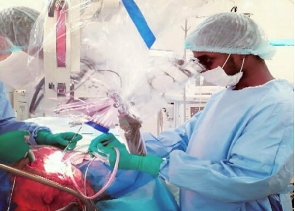Brain tumors are one of the most mysterious and dangerous medical disorders there is. Regardless of age or background, anyone can be affected by these abnormal brain growths.
But thanks to developments in medical research, it is now possible to diagnose and treat brain cancers with greater certainty and optimism than ever before. We shall examine the fundamentals of brain tumors and the many available treatments in this post.
An abnormal mass or development of brain cells is known as a brain tumor. Both benign and malignant cancers are possible in this group. Brain tumors can produce a wide range of symptoms, including headaches, seizures, memory issues, and personality or behavioral changes, regardless of their type.
Although the precise etiology of brain tumors is frequently unknown, certain medical conditions, radiation exposure, and hereditary factors may raise the risk. One of the most terrifying things a person may go through is receiving a diagnosis of a brain tumor.
It is very reasonable to feel afraid and uncertain about it. It is important to note, nevertheless, that because of developments in medical research, the outlook for patients with brain tumors is brighter than ever.
A medical history, physical examination, and sophisticated imaging methods like magnetic resonance imaging (MRI) and computed tomography (CT) scans are frequently used to diagnose brain tumors.
Brain tumors are categorized according to their type, location, and grade after being diagnosed. This classification is essential because it directs medical decision-making.
Surgery, radiation therapy, chemotherapy, targeted therapies, and immunotherapy are among the available treatment options. Access to cutting-edge therapies that are still in the experimental stage is provided by clinical trials.
Patients who take part in clinical trials may receive cutting-edge treatments that are not yet accessible to the public. Despite the fact that brain tumors are still a difficult medical condition, improvements in treatment options, early detection, and multidisciplinary care are giving patients and their families fresh hope.
People who experience recurring symptoms including headaches, seizures, or neurological changes must consult a doctor right away because delaying therapy might have a negative impact on treatment outcomes.
The thought of surgery is one of the most frequent immediate concerns when given a diagnosis of a brain tumor. A brain-related operation can be frightening to consider. But it's crucial to keep in mind that brain surgery has advanced significantly.
Modern neurosurgeons use highly sophisticated methods, such as minimally invasive surgeries and exact positioning devices. These developments lessen the likelihood of problems, minimize harm to healthy brain tissue, and speed up recovery.
Especially for malignant tumors, radiation therapy, and chemotherapy are crucial parts of the treatment of brain tumors. It can be intimidating to worry about possible side effects like hair loss, exhaustion, or nausea.
However, medical professionals make a concerted effort to customize these treatments to each patient's unique needs, reducing discomfort to the greatest extent possible.
In addition, fresh remedies and drugs are consistently being created to boost their efficacy and lessen their negative side effects.
Since the brain is the body's most fragile and important organ, concerns about potential harm during therapy are quite genuine. However, oncologists and neurosurgeons are skilled in preserving vital brain tissue while removing the tumor.
Precision in these treatments has been substantially improved by developments in imaging technology and computer-assisted surgery. Furthermore, the brain is remarkably capable of healing and adapting, which gives patients worried about potential cognitive deficiencies hope.
In conclusion, brain tumors are complicated and difficult, yet there is still hope for them. A better future is now possible for those who are impacted by these tumors thanks to advancements in medical science and technology that have made it possible to diagnose and treat patients with greater accuracy.
We can continue to unlock the secrets of brain tumors and improve care for people with this diagnosis by increasing awareness and funding continuing research.
Click to view details



Health News of Friday, 20 October 2023
Source: Simon Badu, Contributor
Demystifying brain tumors: A comprehensive exploration of understanding, precise treatment
Opinions
















